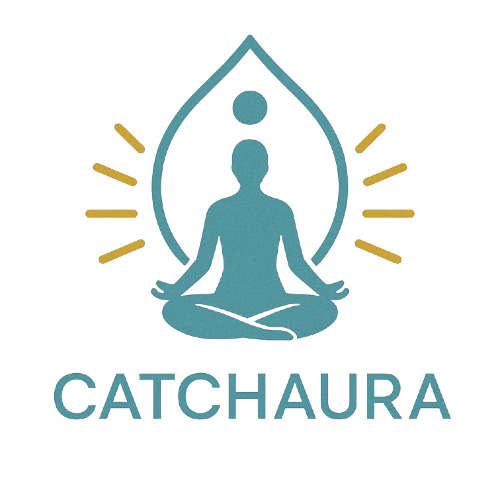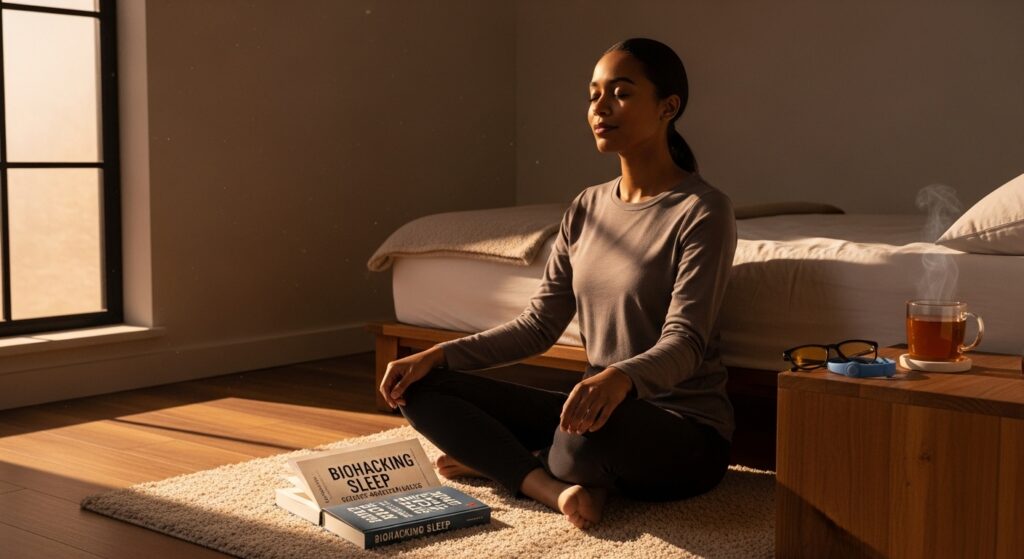Biohacking Sleep: Science-Backed Hacks for Deep, Restful Nights
Estimated reading time: 8 minutes
- Biohacking sleep leverages science and data to optimize sleep quality and deep sleep stages.
- Key strategies include reducing blue light, maintaining a cool sleep environment, and using wearable tech like the Dave Asprey Oura Ring.
- Nutrition, supplements, and structured evening routines play a crucial role in sleep optimization.
- Common mistakes include over-reliance on sleep trackers and disrupting natural melatonin production.
- The biohacking sleep Reddit community offers real-world insights and recommendations.
Why Biohacking Sleep Matters
Sleep isn’t just about shutting your eyes—it’s a critical biological process that affects cognitive function, immune health, metabolism, and emotional well-being. Poor sleep has been linked to chronic conditions like obesity, diabetes, and heart disease.
Biohacking sleep means using data-driven strategies to optimize every stage of your sleep cycle, from falling asleep faster to increasing deep, restorative sleep. Whether you’re tracking your sleep with wearable tech or adjusting your evening routine, small changes can lead to profound improvements.
The Science of Sleep: How to Get More Deep Sleep
Deep sleep (also called slow-wave sleep) is the most restorative phase of the sleep cycle. It’s when your body repairs tissues, strengthens the immune system, and consolidates memories. Unfortunately, stress, artificial light, and poor sleep habits can disrupt this crucial stage.
Here’s how to biohack your sleep for more deep sleep:
1. Optimize Your Sleep Environment
- Reduce Blue Light Exposure: Screens emit blue light, which suppresses melatonin (the sleep hormone). Use blue-light-blocking glasses or enable “night mode” on devices.
- Keep Your Room Cool: The ideal sleep temperature is between 60-67°F (15-19°C). A cooler environment helps your body enter deep sleep more efficiently.
- Invest in Blackout Curtains: Even small amounts of light can disrupt melatonin production.
For a deeper dive into sleep hygiene, check out Harvard’s guide on Sleep Hygiene: Simple Practices for Better Rest.
2. Leverage Wearable Sleep Tech
Tracking your sleep can reveal patterns and areas for improvement. The Dave Asprey Oura Ring is a popular choice among biohackers because it monitors:
- Sleep stages (light, deep, REM)
- Resting heart rate & HRV (heart rate variability)
- Body temperature trends
By analyzing this data, you can adjust habits like caffeine intake, meal timing, and exercise to improve sleep quality.
3. Follow a Biohacker’s Night Routine
A structured evening routine signals to your body that it’s time to wind down. Richard Blake’s The 6-Step Morning and Evening Routine of a Bio-Hacker suggests:
- Digital sunset (no screens 1-2 hours before bed)
- Magnesium supplementation (supports relaxation)
- Red light therapy (boosts melatonin naturally)
Similarly, Alex Consulting’s Sleep Serenity and Science: Biohacking Your Way to Bedroom Bliss emphasizes breathwork and grounding techniques to calm the nervous system.
4. Nutrition & Supplements for Better Sleep
What you eat (and when) impacts sleep quality. Key strategies include:
- Avoid caffeine after 2 PM (it can linger in your system for 8+ hours).
- Eat tryptophan-rich foods (turkey, nuts, seeds) to support serotonin and melatonin production.
- Consider adaptogens like ashwagandha to lower cortisol (stress hormone) levels.
For more tips, the Sleep Foundation’s guide on How to Get More Deep Sleep offers additional science-backed strategies.
Biohacking Sleep on Reddit: What Real Users Say
The biohacking sleep Reddit community is a goldmine of firsthand experiences. Common recommendations include:
- Using weighted blankets for anxiety-induced insomnia.
- Cold showers before bed to lower core body temperature.
- Nootropics like glycine & apigenin for deeper sleep.
Many users also swear by the Dave Asprey Oura Ring for tracking sleep efficiency and adjusting habits accordingly.
Common Sleep Biohacking Mistakes (And How to Fix Them)
Even with the best intentions, some biohacks can backfire. Here’s what to avoid:
- Over-relying on sleep trackers (they can cause sleep anxiety).
- Taking melatonin too frequently (can disrupt natural production).
- Ignoring circadian rhythm (consistent sleep/wake times matter).
The Mayo Clinic’s Sleep Tips: 6 Steps to Better Sleep provides a balanced approach to avoiding these pitfalls.
Final Thoughts: Building Your Personalized Sleep Biohack Routine
Biohacking sleep isn’t about quick fixes—it’s about sustainable, data-driven habits that enhance your body’s natural sleep mechanisms. Whether you’re tracking metrics with an Oura Ring, optimizing your sleep environment, or experimenting with supplements, small tweaks can lead to transformative results.
For further reading, explore CatchAura’s holistic wellness resources and energy optimization techniques to complement your sleep biohacking journey.
FAQ
What is biohacking sleep?
Biohacking sleep involves using science-backed strategies, wearable tech, and lifestyle adjustments to optimize sleep quality and deep sleep stages.
How does the Oura Ring help with sleep biohacking?
The Dave Asprey Oura Ring tracks sleep stages, heart rate variability, and body temperature, providing actionable insights to improve sleep habits.
Can supplements improve deep sleep?
Yes, supplements like magnesium, ashwagandha, and glycine can support relaxation and deeper sleep, but they should complement—not replace—healthy sleep hygiene.
What’s the best temperature for sleep?
The ideal sleep temperature is between 60-67°F (15-19°C), as cooler environments promote deeper sleep.
How can I reduce blue light exposure before bed?
Use blue-light-blocking glasses, enable device “night mode,” or avoid screens 1-2 hours before bedtime to minimize melatonin disruption.


Pingback: Optimize Your Holistic Wellness Blog with SEO - Catchaura
Pingback: SEO Guide for Insomnia Blogs to Boost Traffic - Catchaura
Pingback: 10 Best AI Mindfulness Apps to Reduce Stress in 2025 - Catchaura
Pingback: Free Self-Love Affirmations PDF for Daily Confidence - Catchaura
Pingback: 10 Morning Habits for a Transformative Wellness Routine - Catchaura